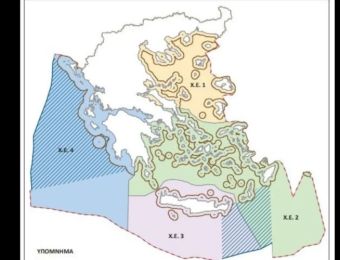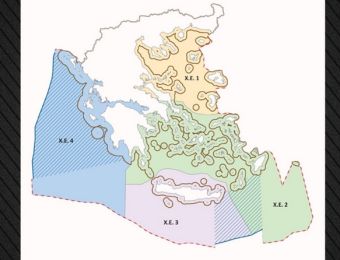Greece Considers 100% Property Tax on Non-EU Buyers After Spain’s Move

Πηγή Φωτογραφίας: Pixabay//Greece Considers 100% Property Tax on Non-EU Buyers After Spain’s Move
A radical new property tax targeting non-EU homebuyers is gaining momentum across Europe, with Greece, France, and Portugal considering following Spain’s unprecedented move to impose a 100% tax on foreign property purchases.
The potential policy shift could significantly impact British retirees and other international buyers seeking homes in Greece and other Mediterranean destinations.
Spain has announced plans to introduce a tax that would require non-EU citizens without legal residence to pay the full value of any property they buy in tax. The measure, aimed at addressing Spain’s ongoing housing crisis, is seen as a major shift in European real estate policies and could influence similar legislation in other high-demand property markets.
Pedro Sánchez, Spain’s Prime Minister, presented the proposal as part of a broader strategy to curb housing shortages and property speculation. “They didn’t buy these homes to live in them or to house their families; they did it to speculate,” Sánchez stated, defending the controversial measure. The policy, still awaiting parliamentary approval, could set a precedent for other EU nations grappling with housing affordability issues.

Experts suggest that Greece, Portugal, and France—three popular destinations for British retirees and investors—are closely monitoring Spain’s approach. Mike Harvey, Managing Director at international relocation firm 1st Move International, warned that such policies, while aiming to address housing shortages, could have unintended economic consequences. “A 100% tax on foreign property buyers could hurt Greece’s competitiveness and economic stability,” he stated.
Greece has already taken steps to regulate its housing market, recently banning new short-term rental licenses in key areas of Athens to address local housing concerns. If the country follows Spain’s lead, British retirees and international buyers could face steep financial barriers to homeownership.
The implications extend beyond individual property buyers to national economies. France’s tourism industry, which generated $68.6 billion in 2023, could experience significant setbacks if similar tax measures are implemented. Portugal, where tourism contributes to 15% of GDP and generated €25.1 billion in 2023, may also see a decline in international property investment if restrictive policies take effect.
With Spain, Portugal, Germany, and France ranking among the top destinations for British expatriates, such policy changes could force many to reconsider their plans. As a result, alternative locations such as Cyprus are gaining traction among British buyers.
According to 1st Move International data, Cyprus ranked as the sixth most popular destination for British relocations between 2022 and 2024. Harvey noted that the island’s Mediterranean lifestyle, English-speaking communities, and expat-friendly tax policies make it an increasingly attractive option for those seeking a home abroad.
As European nations weigh the impact of Spain’s groundbreaking tax policy, the broader landscape of international property investment is shifting. With British buyers exploring alternatives outside the EU, destinations like Cyprus, the United States, Australia, and the UAE are becoming more appealing. The coming months will be critical in determining whether Greece and other Mediterranean nations follow Spain’s example or opt for alternative housing policies to balance local needs with international investment.
Source: pagenews.gr
Διαβάστε όλες τις τελευταίες Ειδήσεις από την Ελλάδα και τον Κόσμο






























Το σχόλιο σας